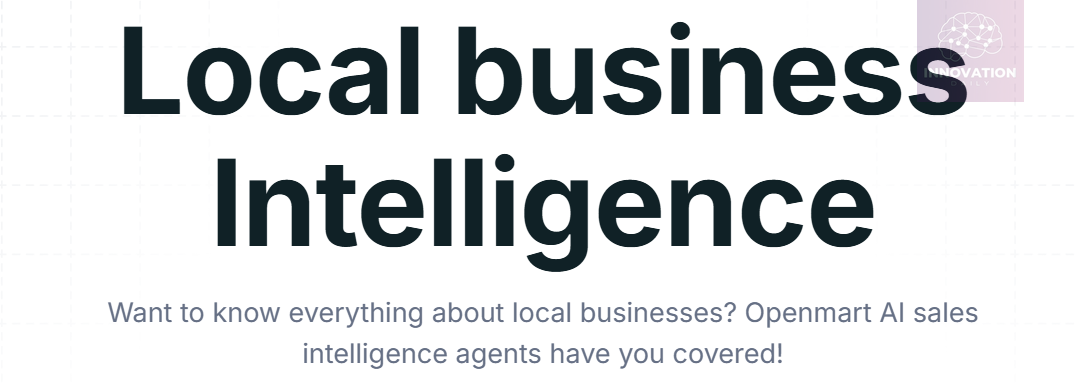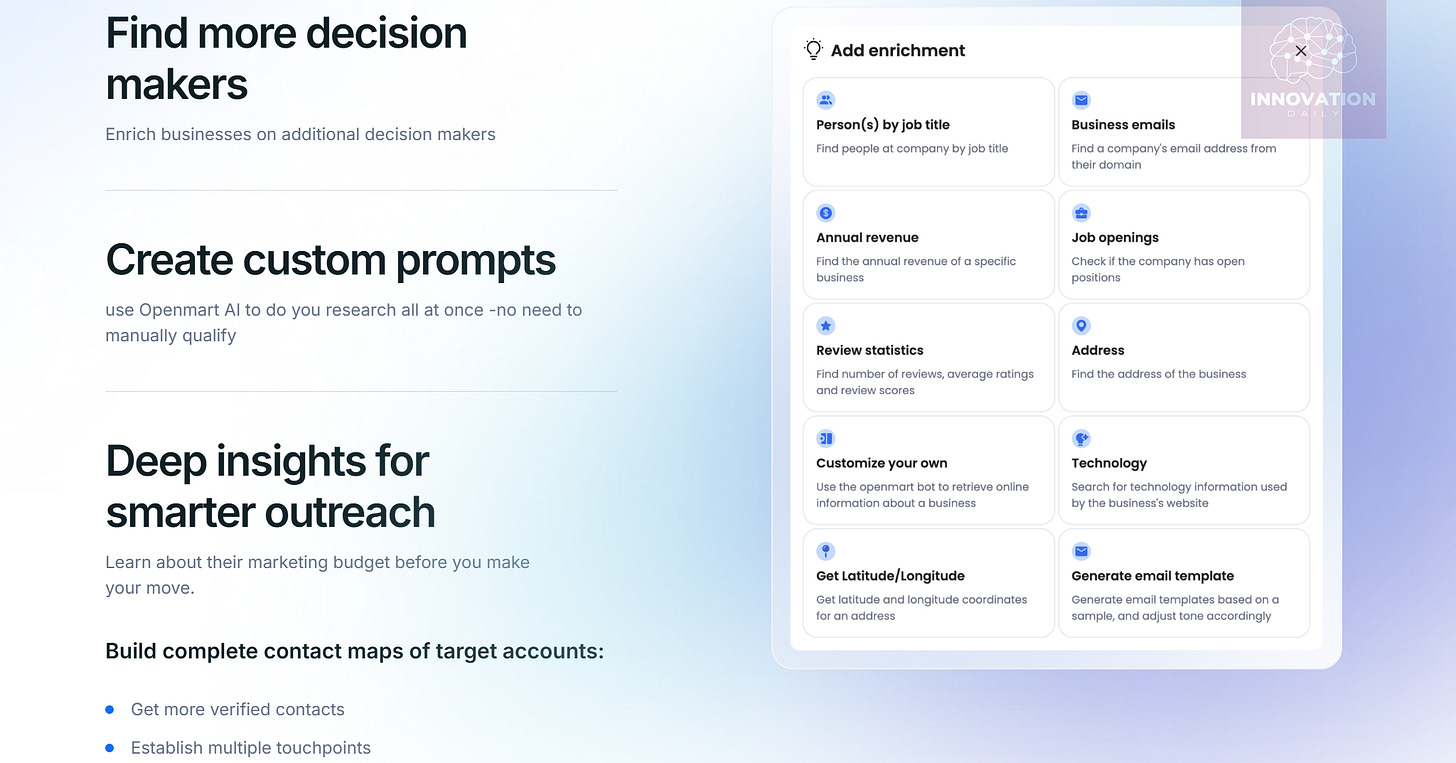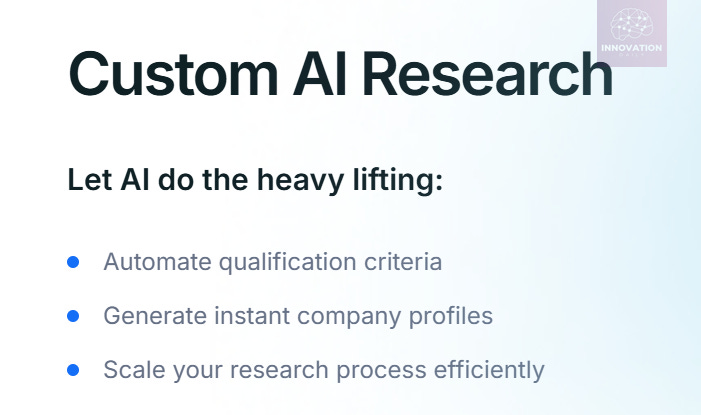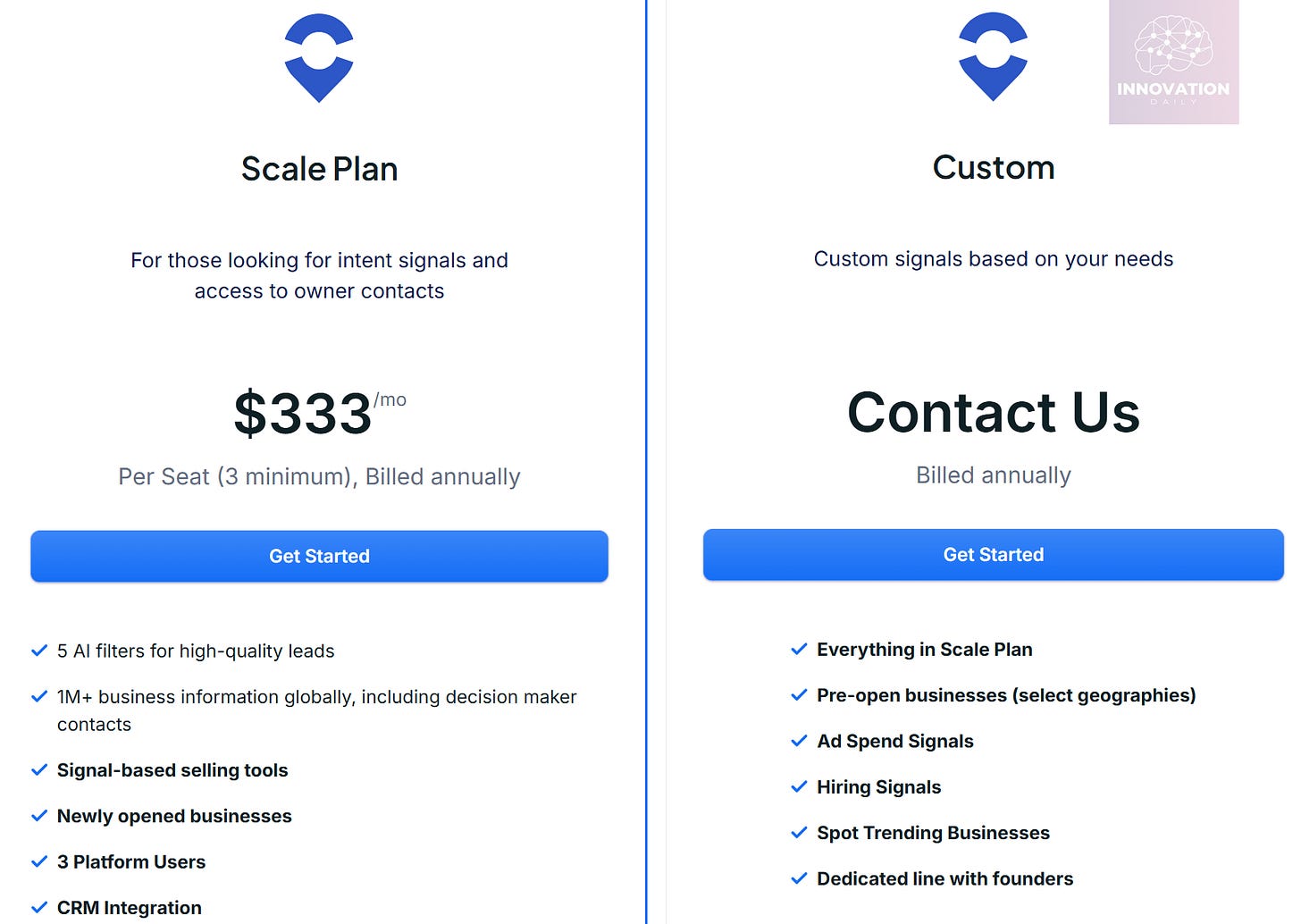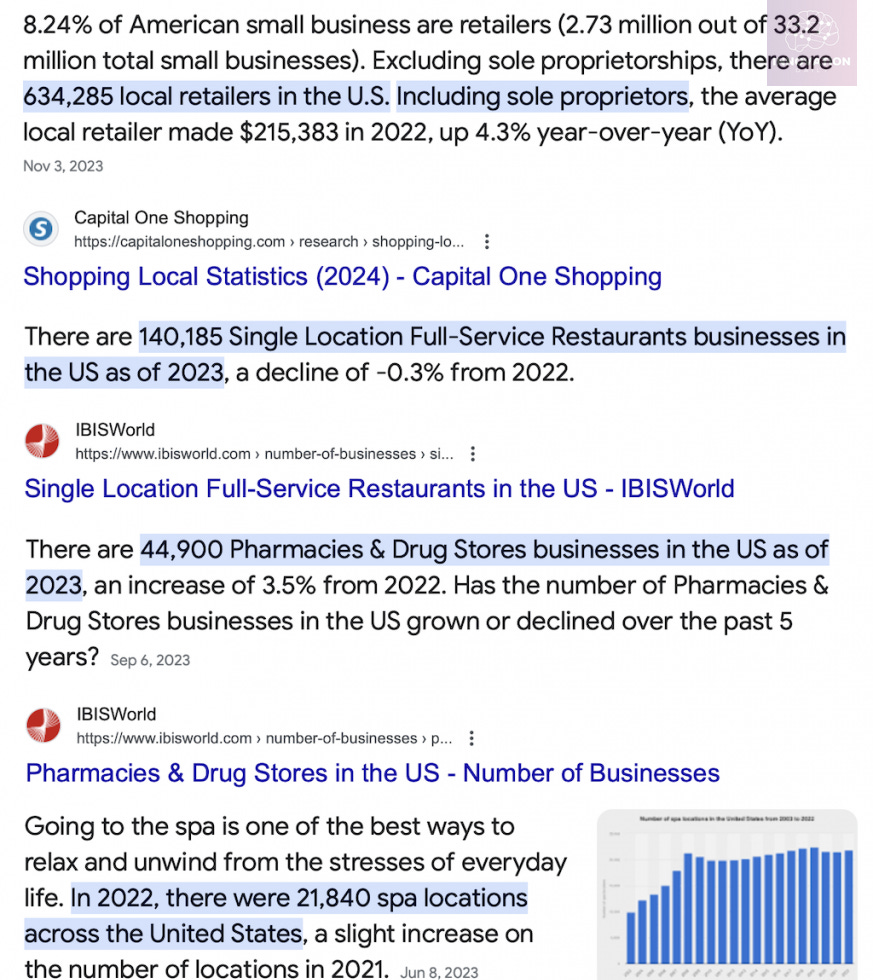From Chaos to Clarity
Today’s featured startup is helping suppliers find local business partners — without the manual grunt work.
Project Overview
Openmart helps manufacturers and large distributors connect with local businesses that might be interested in selling or using their products. These local players include everything from retail shops, beauty salons, and dental clinics to hotels, cafes, museums, and even regional marketplaces.
The traditional process of finding such businesses is slow and chaotic. It typically involves scraping Google Maps, yellow pages, review sites, and niche directories — only to then spend more time figuring out what each business actually does and whether it's worth reaching out.
While there are detailed commercial databases like ZoomInfo, they come with enterprise-level price tags — often starting at $50,000 a year. Openmart offers a faster, more affordable alternative powered by AI. It helps suppliers find relevant leads, cut down time spent on unqualified outreach by 20%, and increase sales volume by up to 150% by uncovering new distribution opportunities.
To get started, users simply input details about their company and products, and specify the types of local businesses they’re targeting. From there, Openmart’s AI assistant can answer prompts like “show me shops that sell eco-friendly bedding” or “find vets discussing feline joint diseases” — instantly generating a curated list of prospects.
These lists can be further filtered — by geography, of course, but also by things like customer profiles (“Gen Z” or “budget-conscious shoppers”). Leads can then be saved directly into an integrated CRM, where users can manage outreach and track conversations.
Openmart recently rolled out a tool that extracts leads straight from Google Search results — even when pages are cluttered with articles and irrelevant content. That data can be saved and enriched with contact details like decision-maker names, which the startup claims boosts cold-call conversion rates by 50%.
Pricing starts at $333/month. Founded in 2023, Openmart is currently in Y Combinator and just launched publicly after a private beta. Despite being early-stage, the startup already has real customers and raised initial funding from YC and two undisclosed investors.
What’s the Gist?
There are over 33 million small businesses in the US alone, most of them local and offline. These businesses are either resellers (like retail stores) or consumers of products (like beauty salons or clinics). That’s an enormous, mostly untapped channel for distribution.
To put it in perspective:
The US has 600,000+ independent retail stores
140,000+ local restaurants
44,000+ pharmacies
21,000+ beauty salons
Imagine the volume of products they could be buying or selling — if only suppliers could reach them efficiently.
But cold-calling thousands of random businesses is wasteful. Without context on what each one actually does, most outreach efforts go nowhere — draining both time and sales budgets.
That’s where Openmart stands out. Think of it as a ChatGPT-style interface — but for local business data. Instead of dumping raw lists, it gives salespeople intelligent, filterable tables of leads they can actually work with.
In a way, Openmart is a modern reinvention of the old Yellow Pages — but with smarter filters, richer data, and a clear sales use case. It’s not a brand-new idea, but it’s executed with fresh thinking and better technology — which gives it a real shot at traction.
Key Takeaways
The current version of Openmart might just be the beginning of a much broader trend: platforms that bridge the gap between national suppliers and local businesses.
This type of platform could become a critical part of the supply chain:
For manufacturers and distributors, it unlocks high-volume, decentralized sales channels.
For local businesses, it offers new, better, and often more affordable suppliers — helping them stay competitive and grow.
The key challenge will be ensuring these platforms don’t turn into spam machines. Instead, they need to enable mutually beneficial relationships — where both sides win.
That’s a realistic goal. Both sides want this kind of platform — they just don’t want to waste time. The market is there. The pain is real. Now it’s about getting the execution right.
Some questions worth thinking about:
What features can prevent spam and low-quality outreach?
How can the platform surface the most relevant matches, not just the most results?
What’s the ideal business model — subscription, pay-per-lead, or something else?
Openmart is taking the first stab. And it’s already showing signs of product-market fit.
Company info:
Openmart
Website: openmart.ai
Last round: $500K, 12.01.2024
Total funding: $500K+ across 2 rounds



